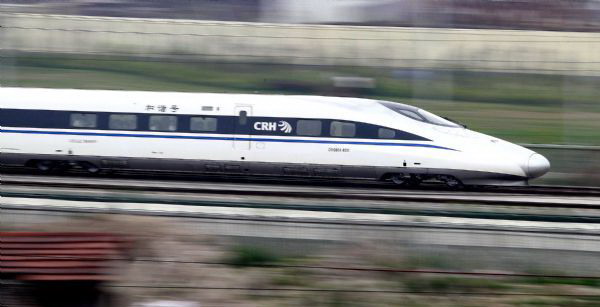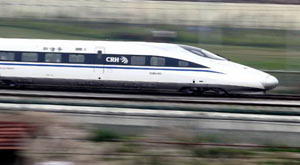China riding railway hopes
Xinhua, August 28, 2014 Adjust font size:
|
|
|
China Railway Corporation which is responsible for building and operating the country's railway network, completed only 235.1 billion yuan (about 38 billion U.S. dollars) of fixed-asset investment in the first half of year. |
When the State Council announced the breakup of the Ministry of Railways 17 months ago, policymakers wanted to see a more efficient railway network that separated government and commercial functions.
More than a year after the cabinet reshuffle that saw the incorporation of the China Railway Corporation (CRC), Chinese Premier Li Keqiang now wants the railway sector to take up roles beyond transportation at home and abroad.
To the premier, the development of railways enables the country to "kill multiple birds with one stone," given its role in stabilizing economic growth, enhancing social harmony and aiding urbanization.
The CRC should boldly explore investment and financing reforms for projects, Premier Li said Friday during an inspection of the company.
Since the beginning of the year, Premier Li has pinned increasing hope on building more high-speed railway projects to spur a slowing economy, partially due to slow implementation of railway investment plans.
To meet an annual growth target of 7.5 percent, the Chinese government needs to do more in the coming months as the GDP expanded only 7.4 percent in the January-June period.
The CRC, which is responsible for building and operating the country's railway network, completed only 235.1 billion yuan (about 38 billion U.S. dollars) of fixed-asset investment in the first half of year, or just one-third of its full-year planned investment.
The slow investment pace fell short of policymakers' expectations, who are now looking at high-speed railways as a pillar of the Chinese economy, particularly when the property sector, another pillar of the economy, is wobbling amid weak demand and declining prices.
But according to Premier Li, railway construction should no longer rely on state investment alone. He says attracting more private funds is necessary.
Chen Hufei, an analyst with the Bank of Communications, expected the railway sector to play a bigger role in stabilizing economic growth in the second half of the year.
"Accelerating railway construction could lead to the consumption of a lot of steel and cement products and help solve the overcapacity problem for those sectors," Chen said.
The hopes on the railway sector are not confined to the domestic market as promoting the construction of more projects overseas is also on the Chinese leaders' agenda.
In his talks with visiting Zimbabwean President Robert Mugabe on Tuesday, Premier Li said China will "actively support" a proposal to build high-speed railways connecting capitals and major business centers in Africa.
Previously, the premier has tried to sell China's high-speed railway technologies to central and eastern Europe, Britain, Australia, southeast Asian countries and the United States.
It has earned him a nickname as the country's "super salesman".
The global outlook of China's high-speed railways was boosted by a World Bank report in July, which said construction costs per meter of rail are significantly lower in China than in Europe and the U.S. as a result of high volume, low costs of land acquisition and a cheaper labor force.
Luo Renjian, a researcher with the National Development and Reform Commission, said he is a firm supporter of the premier's promotional efforts overseas.
"The promotion of high-speed railway by a 'salesman' as senior as the premier will definitely give great confidence to the industry," Luo said.



